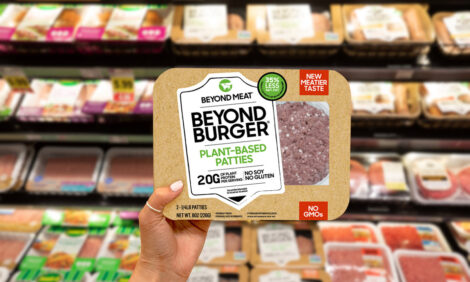



Greenlea, AgFirst Launch Dairy Beef Pilot Scheme
NEW ZEALAND - A new dairy beef programme has been launched by farm consultancy group AgFirst and Hamilton-based meat processor Greenlea to help promote better use of beef genetics among dairy farmers.According to Stuff.co.nz, beef genetics are an increasingly popular option for dairy farmers because resulting calves from mated dairy cows are fetching good values at four-day-old calf sales around the country.
The programme requires farmers to commit to a minimum of 100 straws of either hereford, angus or simmental genetics that are to be mated with mature cows. Dairy farmers in the pilot scheme would receive free beef semen for insemination.
Beef genetics are aimed at producing calves with low birth weights and short gestation periods to reduce calving problems. Calves would be supplied to calf rearers and finishers. Short gestation beef genetics also increased the lactation of cows, which would result in higher milk incomes as well as a more valuable calf.
AgFirst consultant Andrew Jolly said the programme was one of several recommendations he made in a Kelloggs report he wrote last year that looked at ways to improve the bobby calf market.
In that report, he recommended the development of a more integrated profit partnership model where all parties captured the value of the end product.
Jolly challenged dairy farmers beginning to think about mating to look closely at the value proposition if they chose to mate a portion of their herd with beef genetics.
"There is a huge opportunity for them to instead of coming out with a $50 calf, to come out with a $400 calf and to actually understand what they are putting into their animal."
He recommended talking to their calf rearer and finishers to see what they required. This would help build relationships down the supply chain.
The bulk of the issues around bobby calves and dairy beef animals could be resolved if more leadership was shown in the farming sector around bobby calves and there was a greater uptake of proven beef genetics, he said.
"I believe it will get us 90 per cent there."
The use of sexed semen was another option available and would help remove small jersey calves of little economic value that were born during calving.
Sexed semen is semen straws developed by dairy genetics companies that guarantee a heifer calf is born. Farmers saw the semen as a potential game changer in the industry, but its price and issues around conception rate meant they were reluctant to use it, he said.
"The beef genetics are the low hanging fruit and with sex semen, there is still work that needs to be done in terms of reducing the price and coming up with a better conception rate.
"With improved technology, it will be a no-brainer in the future."
Using a proven bull should also help prevent calving difficulties that dairy farmers often experienced when they used beef genetic in their dairy herd. A proven sire is one that has offspring that are old enough to be evaluated for the functional traits of the breed.
Jolly's research found that farmers came up against calving difficulties with beef genetics mostly when they used unregistered bulls bought at the local saleyards.
AgResearch studies showed that using proven bulls should eliminate this issue, he said.
Another option was using wagyu genetics. Jolly said some farmers were happy with the premiums they were receiving for these cattle, however others felt that the breed's slower growth rates compared with other beef genetics meant they could not justify this extra time to get wagyu cattle to required finishing weighs.
He said the challenge for the industry was to come up with a value proposition that negated those challenges.
TheCattleSite News Desk


